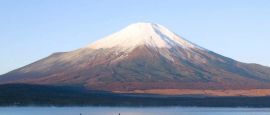Japan Shopping and nightlife
Shopping in Japan
Shoppers will encounter a blend of quintessential Japanese goods and sophisticated sales techniques in Japan, particularly at the big department stores, which are usually located near major train stations and in commercial districts. Many of these department stores are more like exhibitions than shops, and have an army of extremely attentive and highly trained staff providing unparalleled service. Smaller speciality shops, which sell traditional goods and have often been in business for hundreds of years, also provide a unique shopping experience and offer a high level of service.
Special purchases include kimonos, yukatas (casual kimonos), mingei (local crafts including kites and folk toys), omamori (amulets from Shinto shrines), paper lanterns, ceramics, lacquerware, cameras and other electronic items.
Colourful souvenir shops stocked with high-quality hand-made and region-specific goods are ubiquitous. Fans of Japanese popular culture will be able to purchase their favourites manga and anime characters in all major Japanese cities; in particular in Akihabara in Tokyo and Den-Den Town in Osaka. Quirky fashion and cosplay shops can be found in Tokyo's famous Harajuku district. Outlet stores for brand-name goods manufactured in Japan are becoming increasingly common and are often located near international airports.
Bargaining is not common, but bargains can be found during sales in summer (June-July) and winter (December-February).
Tax exemptions are available in authorised tax-free stores, provided that the item is taken out of Japan unopened/unused. Remember, when buying electronic goods that they may not be compatible with the UK or US voltage.
Nightlife in Japan
Tokyo has an abundance of cinemas, theatres, bars, live music venues, coffee shops and nightclubs. Visitors can choose anything from a stylish bar that bathes in soft light to a cheap street stall where patrons stand to drink.
Izakaya, drinking halls that are similar to pubs, are patronised by everyone from university students to office workers and usually have a lively atmosphere. Karaoke 'boxes', venues with small private rooms where customers can be served food and drinks while they sing, are one of the most popular forms of entertainment in Japan. In summer, rooftop beer gardens are also common all over Japan.
Be wary of clubs that offer hostesses or companions who expect to be bought drinks and snacks – they usually come with a massive bill.
In Tokyo, there are concerts of all styles of music almost every night. Foreign opera and ballet companies, orchestras and rock/pop stars visit Japan all year round. For those who would like to see the traditional Japanese performing arts, there are kabuki and noh theatres in major Japanese cities. Check the Japan Arts Council website (www.ntj.jac.go.jp) for details of venues and performances.
The English-language magazine Metropolis (www.metropolisjapan.com) in Tokyo and Kansai Scene (www.kansaiscene.com) in Western Japan are good sources for finding out what's on.
Osaka is also renowned for its nightlife, as is Sapporo on the northern island of Hokkaido and Fukuoka on the southern island of Kyushu.




 You know where
You know where